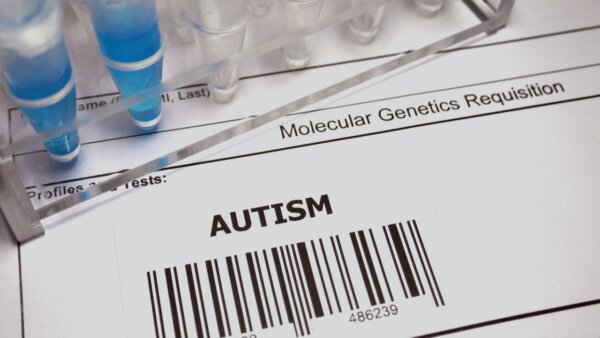
This is for informational purposes only. For medical advice or diagnosis, consult a professional.
The mirror can be a deceptive tool, especially for someone grappling with Anorexia Nervosa. What starts as a desire for control or an attempt to achieve an idealized body shape can quickly spiral into a life-threatening mental illness, consuming thoughts, behaviors, and physical health.
Anorexia Nervosa is more than just an eating disorder; it’s a complex brain-based condition where individuals obsess about weight and what they eat, leading to a relentless pursuit of thinness. Characterized by a distorted body image and an unwarranted, intense fear of being overweight, it stands as one of the deadliest mental disorders.
Because it’s characterized as a brain-based condition, we’re here to talk you through the realities of it: what are its symptoms, and what can aid you in your recovery. For us, we want to help you understand that Anorexia Nervosa is the first critical step toward offering hope and help to those affected.
What is Anorexia Nervosa? Decoding the Diagnosis
Anorexia Nervosa is clinically defined by a persistent restriction of energy intake, leading to significantly low body weight. This is not simply about being thin; it’s about maintaining a low BMI / low body weight below what is minimally normal or expected. Central to the diagnosis is an intense fear of weight gain or becoming fat, even when underweight, and a disturbance in how one’s body weight or shape is experienced. This body image distortion is profound; individuals often see themselves as overweight or “not thin enough” despite objective evidence to the contrary. The influence of body weight or shape on self-evaluation becomes extreme, and there’s a persistent lack of recognition of the seriousness of their current low body weight.
For diagnosis, mental health professionals refer to the DSM-5 criteria, which outline these key features. While previous criteria often included amenorrhea (the absence of menstruation) for females, it is important to note that this is no longer mandatory for diagnosis, reflecting a broader understanding of the disorder’s presentation across all genders.
The Main Subtypes of Anorexia Nervosa
Anorexia Nervosa generally presents in two primary subtypes:
- Restricting type: In this subtype, individuals achieve weight loss primarily through dieting, fasting, or excessive exercise. They do not regularly engage in binge-eating or purging behaviors.
- Binge-eating/purging type: Individuals with this subtype regularly engage in binge eating (consuming an unusually large amount of food in a short period) or purging behaviors (self-induced vomiting, misuse of laxatives, diuretics, or enemas).
Do You Have to be Underweight to be Diagnosed?
By definition, a diagnosis of Anorexia Nervosa requires an individual to be at a significantly low body weight. However, it’s crucial to remember that other eating disorders exist where individuals may struggle with disordered eating behaviors without being underweight.
Who is Affected and at What Age?
Anorexia Nervosa typically emerges during adolescence or young adulthood, though it can affect individuals of any age, gender, or socioeconomic background. While historically more often associated with females, it is increasingly recognized in males, and professionals are becoming more attuned to the signs in diverse populations. It is a misconception that eating disorders only affect a particular demographic; they are complex illnesses that can impact anyone.
Recognizing the Signs & Warning Symptoms of Anorexia Nervosa
Identifying Anorexia Nervosa early is crucial for intervention. The signs can initially be subtle, often masked by secrecy and denial. You may be asking yourself: What are the signs & warning symptoms? They encompass a wide range of physical, behavioral, and psychological indicators:
Physical Signs:
- Whole body: Dehydration, dizziness, fainting, chronic fatigue, dangerously low blood pressure, low body temperature, development of osteoporosis (brittle bones), severe water-electrolyte imbalance (which can be life-threatening), or constantly feeling cold.
- Weight: Underweight, noticeable or extreme weight loss and thinness.
- Developmental: Delayed puberty or slow growth in younger individuals.
- Menstrual: Irregular menstruation or, as mentioned, the absence of menstruation (amenorrhea) in females.
- Gastrointestinal: Chronic constipation or self-induced vomiting.
- Also common: Brittle nails, easy bruising, dry hair, dry skin, persistent headaches, and a dangerously slow heart rate (bradycardia).
Behavioral Signs:
- Excessive or compulsive behavior, often centered around food (e.g., rigid eating rituals, extreme portion control, cutting food into tiny pieces, hiding food).
- Hyperactivity and excessive exercise beyond what is healthy or necessary, often driven by a need to burn calories.
- Social isolation, withdrawal from friends and activities, often to avoid situations involving food.
- Binge eating followed by extreme compensatory behaviors (if of the binge-purge subtype).
- Persistent dieting despite being underweight.
Mood and Psychological Signs:
- Anxiety, apprehension, and intense guilt, particularly around food.
- Depression, irritability, and dramatic mood swings.
- Preoccupation with body shape, size, and weight, often talking about being “fat” despite being visibly thin.
Screening tools like the SCOFF questionnaire can help in early detection. This short, five-question tool can indicate if an individual might have an eating disorder, prompting a more thorough professional assessment.
What Causes Anorexia?
The development of Anorexia Nervosa is rarely attributed to a single cause. Instead, it’s understood as a complex interplay of genetic predispositions, psychological vulnerabilities, and sociocultural influences. While cultural pressures promoting thinness can contribute, they are not the sole cause. Research continues to explore the neurobiological factors, looking at how brain structures and functions might differ in individuals with eating disorders, potentially affecting appetite regulation, impulse control, and emotional processing.
Anorexia Nervosa often co-occurs with other mental health conditions, a phenomenon known as comorbidity. It has a strong link with depression, anxiety, and OCD (Obsessive-Compulsive Disorder). These co-occurring conditions can complicate diagnosis and treatment, as symptoms may overlap or exacerbate one another.
What are the Health Risks of Anorexia Nervosa?
The severe restriction of food intake and the resulting malnutrition associated with Anorexia Nervosa can have devastating effects on nearly every organ system in the body. The body begins to shut down, trying to conserve energy. This can lead to:
- Cardiac issues: A dangerously slow heart rate (bradycardia), low blood pressure, and potential heart failure due to muscle atrophy.
- Bone health: Severe osteoporosis, making bones brittle and prone to fractures, even in young individuals.
- Electrolyte imbalances: Critical water-electrolyte imbalance can lead to heart arrhythmias, seizures, and kidney failure.
- Gastrointestinal problems: Chronic constipation, bloating, and delayed gastric emptying.
- Neurological issues: Dizziness, fainting, and problems with concentration and memory.
- Endocrine problems: Hormonal imbalances affecting menstruation, fertility, and bone density.
Tragically, Anorexia Nervosa has the highest mortality rate among all mental disorders, underscoring the urgent need for early intervention and comprehensive treatment.
Diagnosis and Treatment for Anorexia Nervosa
How Is It Diagnosed?
Diagnosis requires a thorough evaluation by medical and mental health professionals. This typically involves a physical examination, blood tests to check for nutritional deficiencies and electrolyte imbalances, and a comprehensive psychological assessment to evaluate eating habits, body image, and mental health history.
What Are The Treatment Options?
Treatment for Anorexia Nervosa is complex, multi-faceted, and often long-term, requiring a dedicated multidisciplinary team. The primary goals are to restore the individual to a healthy weight, treat any physical complications, and address the underlying psychological issues.
- Medical Treatment: Often, medical stabilization is the first critical step to restore normal weight and correct life-threatening physical imbalances. This may involve hospitalization or residential treatment, especially in cases of severe malnourishment or medical instability.
- Therapy:Talk therapy is the cornerstone of treatment and can help with self-esteem, distorted thinking patterns, and behavior changes.
- Family-Based Treatment (FBT) is highly effective for adolescents, empowering parents to play an active role in refeeding and recovery.
- Cognitive Behavioral Therapy (CBT) helps individuals identify and change dysfunctional thought patterns and behaviors related to food and body image.
- Dialectical Behavior Therapy (DBT) can be helpful for individuals struggling with emotion regulation and impulsive behaviors.
- Are medications used? While no medication directly treats Anorexia Nervosa, pharmacological interventions can be crucial for managing co-occurring conditions. SSRIs (Selective Serotonin Reuptake Inhibitors) can ease symptoms of depressed mood and anxiety, which frequently co-occur with AN. In some cases, antipsychotics may be used for the management of severe mood disorders or pervasive distorted thoughts. These medications are always used as adjuncts to therapy, not as standalone treatments for the eating disorder itself.
What Can Loved Ones Do To Help?
For friends and family, recognizing the signs and encouraging professional help is the best form of help. Expressing concern in a loving, non-judgmental way can open the door for conversation. Educating oneself about the disorder, avoiding power struggles over food, and providing unwavering emotional support throughout the challenging recovery journey are vital contributions. Supporting someone with anorexia is a marathon, not a sprint, and requires patience, persistence, and self-care for the caregivers themselves.
Hope and Recovery: A Message from the Brain Research Foundation
While the journey to recovery from Anorexia Nervosa is arduous and can be marked by relapses, full recovery is absolutely possible. It requires consistent effort from the individual, sustained support from their loved ones, and the dedicated expertise of a specialized treatment team.We believe that understanding the intricate workings of the brain is key to unlocking new and more effective treatments for Anorexia Nervosa. By supporting cutting-edge research, we move closer to a future where more individuals can break free from the grip of this devastating illness and reclaim their lives beyond the mirror. Your support makes this vital research possible. If you are struggling with Anorexia Nervosa, we encourage you to reach out to your General Practitioner or speak with a family member. If you need further guidance in understanding Anorexia Nervosa, please feel free to contact our team here at the Brain Research Foundation. We will be more than happy to provide you with more resources. You can also contact ANAD for more information about recovery programs.


